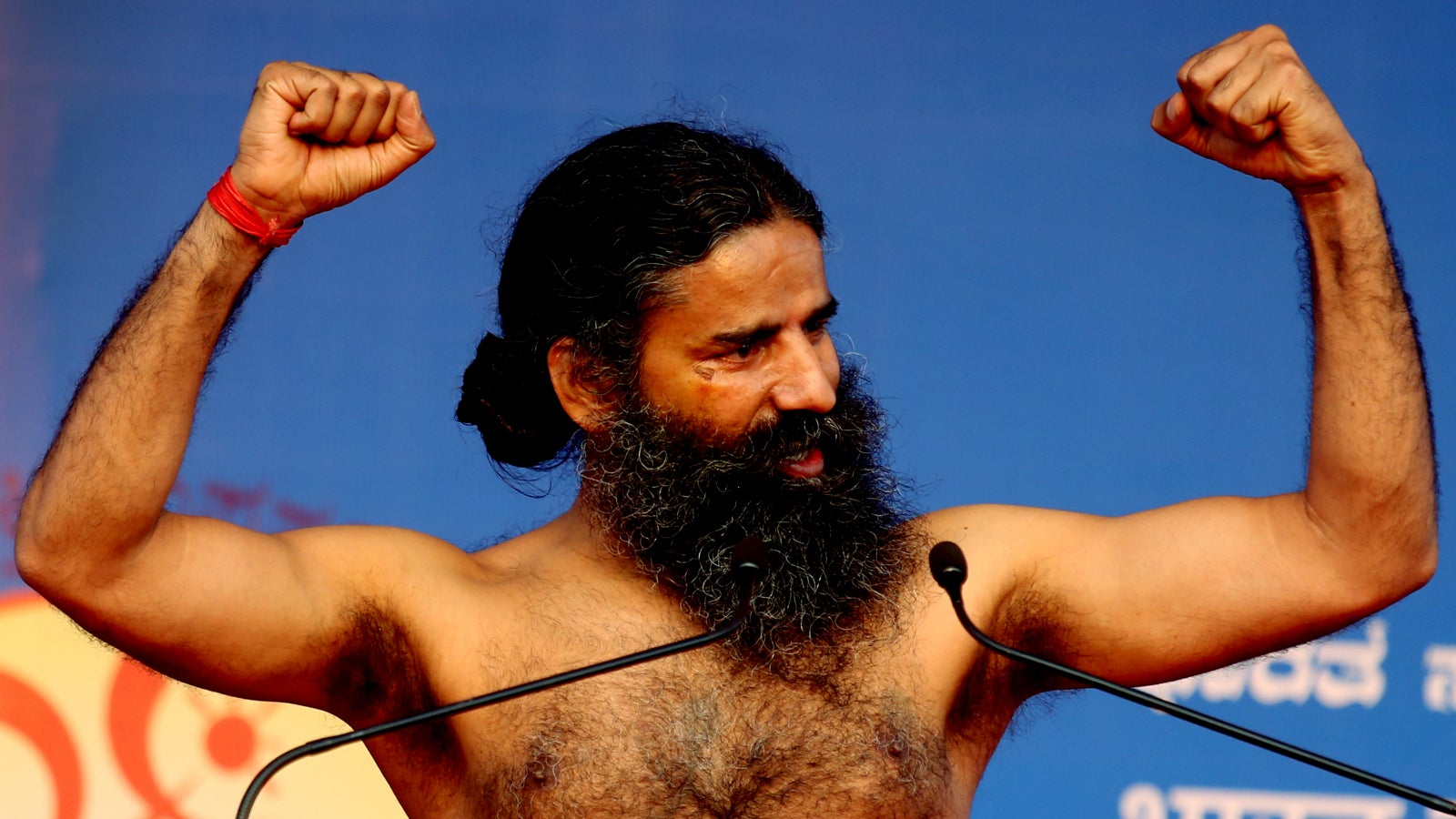An impatient Patanjali launches a manufacturing blitzkrieg to take on India’s consumer goods giants
Patanjali Ayurved is in a hurry.


Patanjali Ayurved is in a hurry.
The maker of everything from soaps and shampoos to ghee and noodles has big ambitions to become a massive domestic consumer goods company. Its 2015 revenues doubled to Rs5,000 crore ($751.5 million) from the previous year, establishing the company as a solid player in India’s herbal and natural goods segment. It is now aiming at the Rs10,000-crore milestone in the next year, splurging on manufacturing units to achieve this.
Earlier this week, the Uttar Pradesh (UP) government cleared two investment proposals worth a total of Rs2,118 crore from the company promoted by yoga guru Ramdev. Other such investments are underway, too.
Patanjali made public its plans to open several food parks that will grow herbs and plants such as gooseberries, aloe vera, tulsi, and tomatoes, and process them to be used as raw material. State governments, on their part, have been keen to offer land to Patanjali, enthused by the company’s “Make in India” plans to source and sell locally. Ramdev’s close association with the ruling Bharatiya Janata Party, whose political campaigns he has supported in the past, is a big help.
“We have bought 230 acres of land in Nagpur and 200 acres in Andhra Pradesh. We will set up three food parks in Madhya Pradesh, Uttar Pradesh, and Assam,” Ramdev told reporters in August.
The company currently has three factories, including a food and herbal park in Haridwar, which is also its headquarters. Patanjali also sources goods from contract vendors.
The firm’s move to rapidly set up units follows its aim to topple multi-national companies such as Hindustan Unilever, Colgate, and Nestle, to become a dominant name in middle-class Indian households. It plans to do this by adding newer products. This year alone, the company announced its entry into varied categories such as baby care products, items of worship, and dairy. It is also running a marketing crusade asking consumers to shun foreign products.
Here’s a look at some of Patanjali’s proposed and concluded investments:
- On Oct. 17, the UP government cleared an investment of Rs2,118 crore by Patanjali to set up two projects: a food processing unit in Noida, near Delhi, and another in Jhansi district.
- In September, the company laid the foundation stone in Nagpur, Maharashtra, for what will be its largest food park in India. The 230-acre plot was allotted following Patanjali’s bid to invest in an upcoming industrial park. The event was attended by state chief minister (CM) Devendra Fadnavis and union minister for transport Nitin Gadkari, indicating the company’s growing popularity with state governments. The plant, once set up, is expected to provide direct employment to 10,000 workers. Gadkari even promised international exposure to Patanjali’s products made in the industrial zone, thanks to an upcoming dry port in the vicinity.
- The company also harbors ambitions to grow abroad. In September, Patanjali announced its plans to open up its first food and herbal park outside India, in Nepal, investing between Rs100 crore and Rs200 crore. “Not a single rupee from the profit generated from this business will be brought to India. Instead, it will be invested in Nepal for the benefit of its people,” Acharya Balkrishna, managing director, Patanjali Ayurved, said in an interview with the Times of India newspaper in September.
- Patanjali will invest Rs500 crore in a food-processing unit in Madhya Pradesh, newspapers reported in August. In September, it was granted 40 acres in the state’s Pithampur industrial area.
- In August, Ramdev announced a Rs500-crore investment plan for four cow shelters to improve dairy productivity. The first one is expected to come up in Uttarakhand.
- Patanjali’s plans to own land and open a manufacturing unit, as well as a research center, in Assam were initially met with reluctance. On Oct.18, though, state CM Sarbananda Sonowal announced that Patanjali had held talks with the state government to invest in the region.